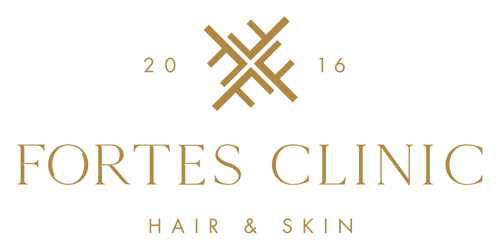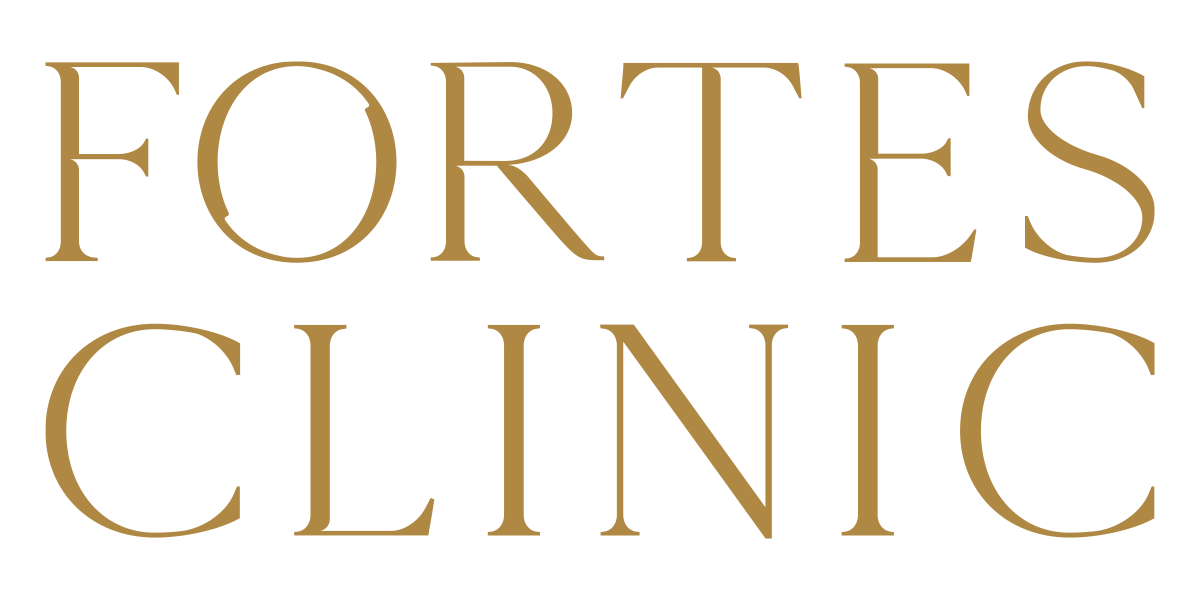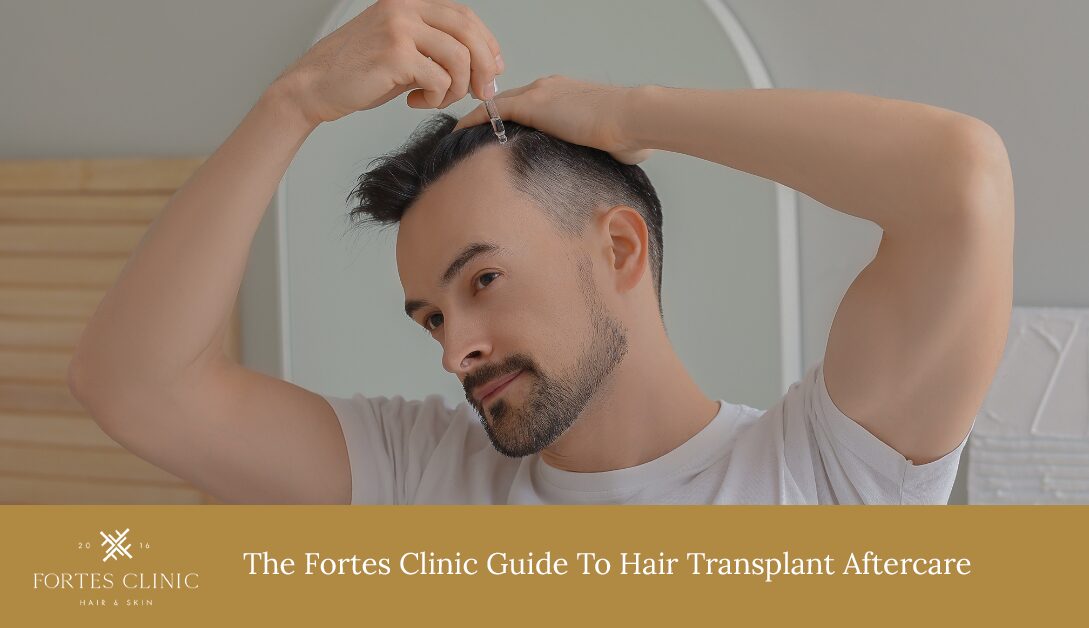Introduction to Hair Transplant Aftercare
Hair transplants offer a transformative solution for those seeking to restore their hairline and boost their confidence. However, the journey to achieving a full head of hair doesn’t end after the surgery. Proper aftercare is essential to ensure the success and longevity of your hair transplant. This guide from Fortes Clinic, leaders in London hair transplants, covers all aspects of hair transplant aftercare, providing you with the information you need for a smooth recovery and optimal results.
Immediate Post-Operative Care
The First 24 Hours
Immediately after your hair transplant, it’s normal to experience some redness, swelling, and discomfort around the treated area. You might notice tiny blood clots forming at the graft sites, which is a natural part of the healing process. Your surgeon will have provided a headband to help reduce swelling and protect the newly transplanted grafts.
Dos and Don’ts
- Do rest and avoid any physical exertion. Your body needs time to recover.
- Do keep your head elevated, even while sleeping, to help minimise swelling.
- Don’t touch, scratch, or rub the transplanted area, as this can dislodge the grafts.
- Don’t wash your hair unless instructed by your surgeon, usually within the first 24-48 hours.
The First Week
Managing Pain and Discomfort
Some discomfort is expected, but it should be manageable with over-the-counter pain relievers like paracetamol. Your surgeon may also prescribe medication to help with pain and reduce the risk of infection. Always follow the prescribed dosage and schedule.
Sleeping Positions
To avoid putting pressure on the transplanted area, sleep with your head elevated using several pillows or in a recliner. Try to sleep on your back, avoiding any contact with the grafts.
Washing Your Hair
Your surgeon will give specific instructions on when and how to wash your hair. Typically, you can begin gentle washing around the third day post-surgery. Use a mild, non-perfumed shampoo. Pour the shampoo diluted in water over your head and gently rinse. Avoid direct pressure from the showerhead on the grafts.
Medications and Antibiotics
It’s crucial to take any prescribed antibiotics to prevent infection. Additionally, anti-inflammatory medications may be recommended to reduce swelling. Follow your surgeon’s instructions precisely to ensure a complication-free recovery.
Short-Term Hair Transplant Aftercare
Weeks 2-4
During this period, you may notice the transplanted hairs falling out. This shedding, known as “shock loss,” is a normal part of the process and should not cause concern. The hair follicles are still intact and will start to produce new hair.
Protecting the Transplanted Area
Continue to protect your scalp from the sun. Wear a loose-fitting hat if you need to go outside or apply a high-SPF sunscreen recommended by your surgeon. Avoid any activities that might cause sweating, as this can irritate the scalp.
Resuming Normal Activities
You can begin to return to your normal routine but avoid heavy lifting, intense exercise, and swimming. Gradual reintroduction of activities is key. Light walking is beneficial and can help with circulation.
Common Concerns In Hair Transplant Aftercare and How to Address Them
Swelling
Swelling, especially around the forehead and eyes, can be common. Applying a cold compress gently on the forehead (not directly on the grafts) can help reduce swelling. Elevating your head while sleeping also aids in reducing this issue.
Itching
As the scalp heals, itching can become quite bothersome. Resist the urge to scratch, as this can damage the grafts. Your surgeon might recommend a mild topical lotion or antihistamine if the itching is severe.
Scabbing and Crusting
Scabs will form around the graft sites as part of the natural healing process. Do not pick at the scabs; they will fall off naturally within a couple of weeks. Picking at scabs can lead to infection or scarring.
Redness
Redness can persist for a few weeks and is part of the normal healing process. If you notice increasing redness, warmth, or pain, it may indicate an infection, and you should contact your clinic immediately.
Long-Term Hair Transplant Aftercare
Months 2-6
New hair growth usually begins within 2-3 months after the transplant. Initially, the hair might be thin and fine, but it will gradually thicken over the months. Patience is essential, as full results can take up to a year to manifest.
Maintaining Scalp Health
Use gentle hair care products to keep your scalp clean and moisturised. Avoid shampoos with harsh chemicals or strong fragrances that can irritate the scalp. Your surgeon may recommend specific products that are safe for use.
Products to Use
Opt for shampoos and conditioners that are free of sulfates and parabens. Consider using products designed for sensitive scalps or post-surgical care. Additionally, avoid any hair growth products unless approved by your surgeon.
Months 6-12
Monitoring Progress
Regularly check your progress through photos. This visual record can help you and your surgeon track growth and make any necessary adjustments to your aftercare routine.
Follow-Up Appointments
Attend all scheduled follow-up appointments with your surgeon. These visits are crucial for monitoring the success of the transplant and addressing any concerns or questions you might have.
Final Results
By the end of 12 months, the transplanted hair should have fully grown in and thickened. You’ll be able to see the final results of your transplant, with a fuller, natural-looking hairline.
Lifestyle and Dietary Tips
Diet for Healthy Hair Growth
A balanced diet rich in vitamins and minerals supports healthy hair growth. Include plenty of protein, iron, zinc, and vitamins A, C, D, and E in your diet. Foods such as lean meats, fish, nuts, seeds, leafy greens, and fruits are excellent choices.
Foods to Avoid
Reduce the intake of sugary and processed foods, as they can contribute to poor hair health. Focus on whole foods that provide the necessary nutrients for hair growth.
Hydration and Hair Health
Importance of Staying Hydrated
Staying hydrated is vital for overall health and hair growth. Water helps to keep your scalp healthy and promotes the proper functioning of hair follicles. Aim to drink at least 8 glasses of water daily.
How to Maintain Proper Hydration
In addition to drinking water, eat water-rich foods like cucumbers, watermelon, and oranges. Limit consumption of caffeine and alcohol, which can dehydrate your body and negatively affect hair growth.
Stress Management
Impact of Stress on Hair Growth
High stress levels can hinder hair growth and contribute to hair loss. Stress affects your overall health, including the health of your hair follicles.
Techniques to Manage Stress
Incorporate stress-relieving practices such as yoga, meditation, or deep breathing exercises into your routine. Regular physical activity, adequate sleep, and hobbies that you enjoy can also help manage stress effectively.
Professional Hair Transplant Aftercare Support
What to Expect from Fortes Clinic
At Fortes Clinic, we are committed to providing ongoing support and care after your hair transplant. From detailed aftercare instructions to regular follow-up appointments, our team is dedicated to ensuring your recovery is smooth and successful.
Importance of Regular Check-ups
Regular check-ups allow your surgeon to monitor your progress and address any potential issues early. These visits are essential for achieving the best possible results and for maintaining the health of your transplanted hair.
Common Myths & Misconceptions In Hair Transplant Aftercare
Debunking Aftercare Myths
Many believe that washing hair after a transplant will harm the grafts. In reality, gentle washing as per your surgeon’s instructions is important to keep the scalp clean and promote healing.
Myths about Exercise and Activity
It’s a common misconception that you must avoid all physical activity for an extended period. While heavy exercise should be avoided initially, light activities can be resumed sooner under your surgeon’s guidance.
Myths about Hair Growth Products
Not all hair growth products are beneficial post-transplant. Some can even cause harm. Always consult your surgeon before using any new hair products to ensure they are safe for use after your procedure.
Recap
Proper aftercare is crucial to the success of your hair transplant. By following the guidelines outlined in this guide, you can ensure a smooth recovery and optimal results. Remember, the team at Fortes Clinic is here to support you every step of the way.
FAQs on Hair Transplant Aftercare
How long does recovery take?
Recovery times vary, but most patients see significant healing within 2-3 weeks and final results within 12 months. Patience and proper aftercare are key to achieving the best outcomes.
Can I wear a hat after my hair transplant?
Yes, you can wear a hat, but it should be loose-fitting and not place pressure on the transplanted area. Consult your surgeon for specific recommendations on when and what type of hat is appropriate.
When can I return to work?
Many patients can return to work within a week, depending on the nature of their job and their individual recovery. If your work involves physical exertion, you might need a longer recovery period.
What should I avoid after a hair transplant?
Avoid heavy exercise, swimming, and exposure to direct sunlight for the first few weeks. Follow your surgeon’s aftercare instructions carefully to ensure the best results and prevent complications.
By adhering to these aftercare guidelines, you can maximise the success of your hair transplant and enjoy the benefits of a fuller, healthier head of hair.
If you’re keen on learning more about our hair transplant procedures, book your free consultation today or contact us if you require more information!



